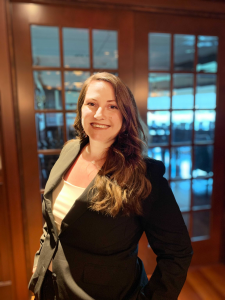Largest Single, Unclaimed Asset Recovered for One Client
COOPERSTOWN, NEW YORK — Robert Poulson, Partner, Poulson Law Offices, announced that his firm recently recovered a $1.5 million check for a corporate client, a multinational conglomerate that owns several hundred subsidiaries. Mr. Poulson said the unclaimed property — which is the largest single item ever recovered for one client — got lost as the result of a record keeping error when the payee of a government-issued check was merged into a new company.
Mr. Poulson said the check had been missing from the company’s coffers for more than 30 years. “We have recovered millions of dollars for other clients,” he said. “But recovering a $1.5 million lost check for a client is very unusual. A single lost check can cost a company a lot of money. Without their asset recovery lawyers, this money was likely lost forever.”
In or around 1999, the state’s financial agency issued a warrant for payment to a subsidiary of the client. The warrant went astray, probably because the subsidiary was merged out. In time, the client’s record of the receivable fell through the cracks. In 2020, when Poulson Law first began reviewing the forensics of the client’s predecessor, the only record of the failed payment was that of the state’s unclaimed property agency showing its receipt of the funds and a record that they were owed to the client’s predecessor.
“We discovered the item after a lengthy review of our client’s corporate structure and history,” Mr. Poulson said. “The actual payee of the check was dissolved in 2004. Prior to that, it had gone through two mergers and a name change.”
In order to recover the check and determine where it came from and who it went to, Mr. Poulson and his client’s in-house counsel had to request access to all records going back before the business transactions and name changes took place. The records were stored in what is known as Iron Mountain, one of the largest repositories of corporate and government documents in the world.
“Fortunately, we were able to find the records of the dissolution and a resolution transferring all assets of the dissolved company to its parent corporation — that is, our client,” Mr. Poulson said. “Without those records, it’s unlikely we would have been able to recover the money.”
Mr. Poulson said that, many times, as a result of the disruption in corporate housekeeping caused by mergers and corporate restructuring, receivables get lost in the shuffle and are often subsequently written off when the old company’s records and employees are dispersed. Mr. Poulson said, “It may not seem unreasonable to write off tens of thousands, or even hundreds of thousands, of unknown receivables as a cost of a merger of billion-dollar companies. Without an active asset recovery effort, these receivables are lost forever, as was almost the case with our client’s $1.5 million receivable. I am surprised by the number of big-ticket receivables that get left behind in M&A transactions. I suspect that the acquiring companies fully intend to go back and clean up those assets left behind. But on the ground, accounting records do not always transfer cleanly, paper records are often misplaced or destroyed, and employees of the acquired business often leave, sometimes in a huff.”
For more information, call (607) 547-1195 or visit www.poulsonlaw.com.
###
About Poulson Law Offices
With offices in Cooperstown and New York, New York, Poulson Law Offices concentrates its practice in liquidations and collection work. The firm is led by Robert Poulson, who has spent most of his career as a commercial litigator in the financial services sector, and Jill Ann Poulson, a transactional lawyer with heavy experience in mergers and acquisitions for major domestic and international corporations. Poulson Law Offices has recovered millions of dollars in unintentionally abandoned assets for corporate clients. For more information, call (607) 547-1195 or visit www.poulsonlaw.com.



 During the pandemic, fewer people were on the roads, yet the number of traffic deaths went up. For Black drivers, the death rate was much higher, citing the configuration of unsafe roads that can be found in communities of color. Ira Slavit, Partner,
During the pandemic, fewer people were on the roads, yet the number of traffic deaths went up. For Black drivers, the death rate was much higher, citing the configuration of unsafe roads that can be found in communities of color. Ira Slavit, Partner, 



